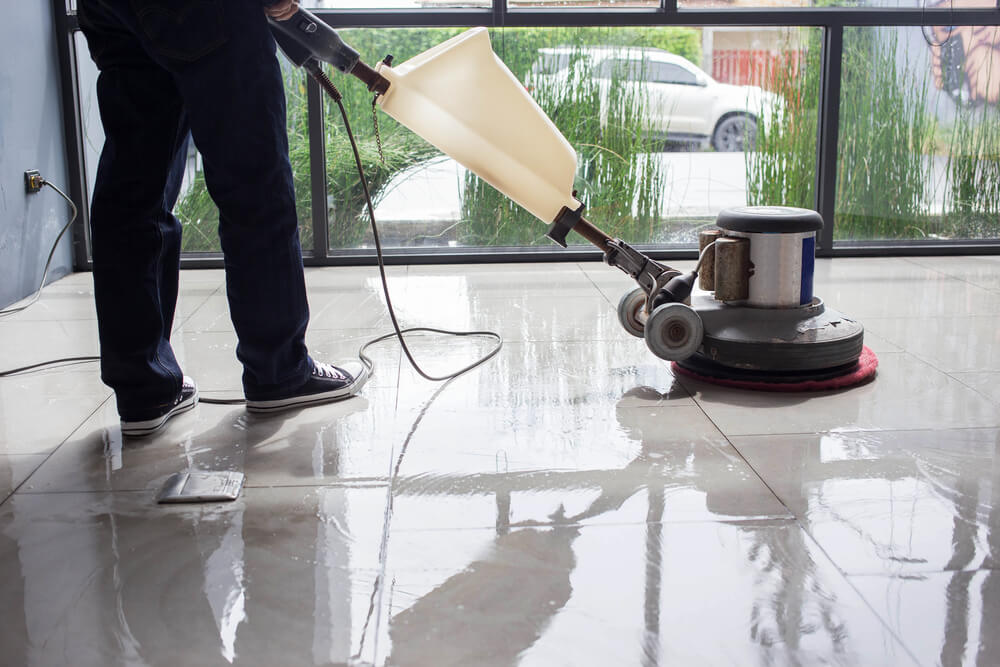Clean Marble Floor Without Damaging

The marble floors look exquisite, a timeless stone that comes in a range of hues and veining patterns and produces fantastic flooring. This sensitive, porous stone, on the other hand, is notable for staining, and only particular cleaning products may be used on it without causing harm.
Although marble floors are highly durable, they do require frequent cleaning and maintenance with the appropriate chemicals and techniques to maintain their appearance.
We will show you how to clean marble floors without damaging them in this week’s post. Let’s get started.
Do Not Get Harsh Cleaners
Marble is a calcareous, alkali material that reacts with anything acidic. That chemical reaction has the potential to cause lasting discoloration. Therefore, selecting the proper cleaning solution is critical.
Strong cleansers, such as chlorine bleach or ammonia, can permanently damage the marble’s sheen. Avoid any cleaners that have a gritty feel to them or that claim to “scour away” grime.
Acid-based industrial cleaners, including those suggested for granite, as well as DIY formulations, including distilled white vinegar or lemon juice, should be avoided at all costs. You can also hire HomePlus house cleaning services in Newton, MA, to clean your marble floors safely.
Removing Dust and Dirt
Sweeping marble floors regularly is a great method to maintain them. Nonetheless, you must exercise caution when using specific cleaning tools.
It’s a good idea to use a dust mop or a dry mop. They are simple to operate and consist of a long stick with a soft microfiber at the end. The microfiber collects and catches dirt, dust, and hair efficiently.
A flared broom can also be used for everyday sweeps. Flared brushes are gentler than unflared brooms. The bristle tips mimic broken ends and efficiently gather up dust. If you must use a vacuum, be sure that it has a setting for hard flooring. Apply it softly on the floor, and don’t use too much pressure.
Make Cleaning Solution
Since you should avoid using harsh chemicals or scratchy brushes, hot water is your best chance for removing difficult stains.
Hot water is quite good in removing grime, oil, and other contaminants from your floors.
Because marble floors are porous, they should be cleaned with a gentle detergent. pH-neutral cleansers, like ZEP or anything else. They are gentle and safe to use because there is little chance of irritation if they get on your skin. Take the product’s instructions and add the appropriate amount to your hot water.
Mop and Rinse the Floor
Take out your best mop, whether it’s a spin mop or a conventional manual mop. Spin mops are very useful since they rapidly wring out the majority of the water.
Begin at the far end of the room and make your way to the entrance or exit. To avoid spreading filth, immerse and wring your mop frequently in a solution. It’s now time to rinse. Fill a bucket halfway with cool, clean water. Finally, using the same way as before, mop as needed by dipping and wringing.
Further mopping of the floor will eliminate any cleaning solution residue. It’s also a great technique to remove any lingering dust or grime.
Removing Scuffs
A tennis ball is ideal for safely removing shoe scuffs as well as other surface markings from marble flooring. Use felt pads on the bottoms of furniture legs to maintain your marble smooth and scratch-free.
You may also put doormats at all of your home’s entrances to reduce the quantity of dirt and dust that comes in from the outside.
Marble Stain Removal
Marble is a weak stone that is notorious for discoloration. It implies that if you drop something onto it, you should wipe it up right away. Yet, if a spill is overlooked and has sufficient time to settle in, there is still a chance.
Spot treat the stain with just a cloth soaked in 12% hydrogen peroxide along with a few droplets of ammonia liquid.
Dry and Buff the Floor
Finally, dry and shine the floor with a soft microfiber cloth. Working in large circles gives your floor a highly polished appearance. Excess water must also be removed to avoid discoloration.
Certain marble includes iron oxide particles that, if exposed to water for an extended period, can develop rust stains that are virtually hard to remove.
Tips to Extend the Lifespan of Marble
- To trap scratch-causing grit, use non-skid doormats both inside and out entry doors.
- Never pull large pieces of furniture all across the floor.
- Select honed, brushed, or tumbled marble for slippery flooring in places such as bathrooms or kitchens.
- Avoid using abrasive cleansers and floor cleaning equipment.
- Use a marble floor sealer and reapply as directed by the maker.
Hire the Cleaning Service
Now that you know how to keep your marble floor’s shine and exquisite appearance, go ahead and clean it properly.
If you ever run into issues that are not addressed in this article, you can hire HomePlus home cleaners in Newton, MA. Our cleaners will thoroughly clean your floors, especially marble flooring.
By clicking This link, you can book an appointment in less than 60 seconds.
